Featured
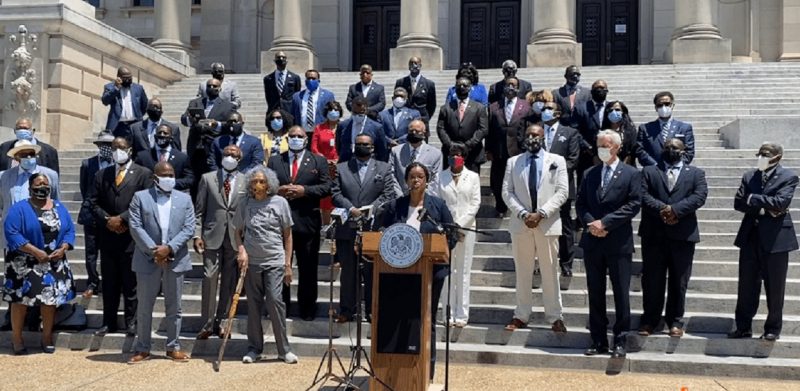 Black Mississippi senators protest bill to ban critical race theory. By AP and NPR
Black Mississippi senators protest bill to ban critical race theory. By AP and NPR
Black lawmakers walked out in protest Friday and withheld their votes as the Mississippi Senate passed a bill that would ban schools from teaching critical race theory. The state superintendent of education has said critical race theory is not being taught in Mississippi schools and legislators have offered no evidence to show it is. Republicans said the theory teaches “victimhood,” while Democrats said the ban could squelch discussion of Mississippi’s racist history. Critical race theory is an academic framework that examines how racism has shaped public policy and institutions such as the legal system, and how those have perpetuated the dominance of white people in society. Read more
Related: Critical race theory: GOP targets Google, Walmart and Disney training. By Jessica Guynn / USA Today
Related: Book bans in schools are catching fire. Black authors say uproar isn’t about students. By
Political / Social
 Donald Trump calls for racial violence: White supremacists are listening, but the media laughs. By Chauncey Devega / Salon
Donald Trump calls for racial violence: White supremacists are listening, but the media laughs. By Chauncey Devega / Salon
Donald Trump is no longer president of the United States. Yet he remains a public menace, and to ignore his words and deeds is a critical error. In many ways, Donald Trump continues to be the most dangerous person in America. The Republican Party has become a de facto criminal organization, with Donald Trump as its leader. His apparent mental pathologies now define the “conservative” movement, and the coup attempted last January has effectively continued. If Republicans lose another national election, they will likely attempt another coup or engage in other acts of political violence on a significant scale. No significant figure in the Trump regime has been punished for its abundance of criminal acts, including democide resulting from willful and intentional acts of political negligence during the coronavirus pandemic. Read more
Related: Atlanta D.A. Requests Special Grand Jury in Trump Election Inquiry. Maggie Astor and
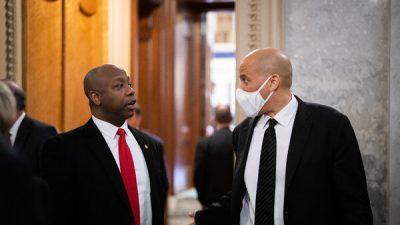 ‘I Will Not Sit Quietly’: 3 Black Senators in Spotlight on Voting Rights. Jonathan Weisman and
‘I Will Not Sit Quietly’: 3 Black Senators in Spotlight on Voting Rights. Jonathan Weisman and
Senators Cory Booker, Tim Scott and Raphael Warnock brought vastly different perspectives to proceedings that highlighted the Senate’s striking lack of diversity.
The Senate has only three Black members, a paltry number that is unrepresentative of the country, so when the chamber took up a voting rights bill this week aimed at preventing the disenfranchisement of voters of color, Senators Cory Booker, Tim Scott and Raphael Warnock played an outsized role in the debate. Read more
Related: Finally, some moral clarity in the voting rights debate. By Jenifer Rubin / Wash Post
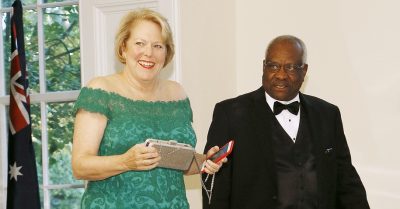 Is Clarence Thomas the most corrupt Supreme Court Justice in your lifetime? Frank Pedraza / Daily Kos
Is Clarence Thomas the most corrupt Supreme Court Justice in your lifetime? Frank Pedraza / Daily Kos
I really don’t know where to begin with this asshole. So, maybe I should start from the beginning. I remember it vividly. I remember the confirmation hearings where Anita Hill made credible allegations that this asshole is a sexual predator. I remember that he was still confirmed by the narrowest of margins. Basically, he was a black Brett Kavanaugh but without the beer. As an aside, I would never cross a street if Brett Kavanaugh is behind the wheel. I would feel like a beer in the headlights. Read more
Related: Is Ginni Thomas a Threat to the Supreme Court? By Jane Mayer / New Yorker
 Who were the Jan. 6 attackers? Isolated white folks, searching for meaning — and enemies. By Chauncey Devega / Salon
Who were the Jan. 6 attackers? Isolated white folks, searching for meaning — and enemies. By Chauncey Devega / Salon
Last January’s assault on the U.S. Capitol was a white supremacist attack against America’s multiracial democracy. Yet these zombie ideas about the “white working class” still color how too many political observers understand that event. New research sheds additional light and clarity on the role played by white identity politics in the Jan. 6 attack. A paper by social scientists Austin Wright (the University of Chicago Harris School of Public Policy) and David Van Dijcke (the University of Michigan) details how participants in the Capitol assault were more likely to come from areas of the country with comparatively high levels of Trump support. In addition, Wright and Dijcke also show that the likelihood of participating in the attack on the Capitol greatly increased if the participants came from a community that Trump narrowly lost. Read more
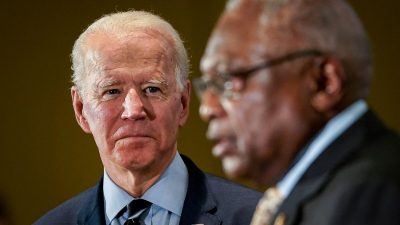 Black voters in South Carolina voice frustration with Biden’s first year in office. By and
Black voters in South Carolina voice frustration with Biden’s first year in office. By and
Black voters in South Carolina helped reenergize Joe Biden’s struggling presidential campaign during the 2020 primary, leading to his eventual victory. But now, one year into his term, some of those voters are expressing frustration that the president hasn’t delivered on all of his promises yet. Many say they’re disappointed, in particular, with the failure by Democrats to pass key voting rights legislation in the Senate. The caucus on Wednesday night tried to advance two bills, the Freedom to Vote Act and the John Lewis Voting Rights Advancement Act, but Republicans blocked their effort. Read more
 Mitch McConnell’s Klanian Slip. By Elie Mystal / The Nation
Mitch McConnell’s Klanian Slip. By Elie Mystal / The Nation
In saying the quiet part out loud, McConnell confirmed what many of us already knew: White people think they’re the only true Americans.
You can hear this worldview when you listen very closely to some white people, but every now and again one of them drops all pretenses and says the quiet part aloud. Yesterday, reporter Pablo Manriquez asked Senate minority leader Mitch McConnell about concerns “voters of color” have over voting rights. McConnell said the concern was misplaced, because: “If you look at the statistics, African American voters are voting in just as high a percentage as Americans.” Read more
 How the pandemic’s unequal toll on people of color underlines US health inequities – and why solving them is so critical. By Abybakarr Jalloh / The Conversation
How the pandemic’s unequal toll on people of color underlines US health inequities – and why solving them is so critical. By Abybakarr Jalloh / The Conversation
From the earliest days of the pandemic, COVID-19 has wrought a far higher toll in communities of color than in the general population – thrusting the long-standing issue of health disparities in the U.S. into the attention of public health officials and the general public. Even though non-Hispanic white people make up 60% of the population, racial and ethnic minorities in the United States have borne significantly higher risks of COVID-19 infections than white people, as well as hospitalizations and deaths from COVID-19. Read more
 Kizzmekia Corbett, an African American woman, is praised as key scientist behind COVID-19 vaccine.
Kizzmekia Corbett, an African American woman, is praised as key scientist behind COVID-19 vaccine.
Dr. Anthony Fauci, the nation’s top infectious disease expert and a constant presence on TV during the coronavirus pandemic, was asked a blunt question during a forum hosted by the National Urban League: “Can you talk about the input of African American scientists in the vaccine process?” “The very vaccine that’s one of the two that has absolutely exquisite levels — 94 to 95% efficacy against clinical disease and almost 100% efficacy against serious disease that are shown to be clearly safe — that vaccine was actually developed in my institute’s vaccine research center by a team of scientists led by Dr. Barney Graham and his close colleague, Dr. Kizzmekia Corbett, or Kizzy Corbett,” Fauci told the forum. “Kizzy is an African American scientist who is right at the forefront of the development of the vaccine.” Watch her interview with Lawrence O’Donnell
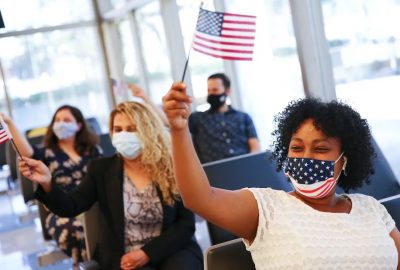 One in 10 Black people living in the U.S. are immigrants, new study shows. By Emmanuel Felton / WashPost
One in 10 Black people living in the U.S. are immigrants, new study shows. By Emmanuel Felton / WashPost
 Racial Turmoil Mars Signs of Progress at the U.S. Mint.
Racial Turmoil Mars Signs of Progress at the U.S. Mint.
Beneath the public signs of social progress is an agency that has struggled for years with racial tension, with Black employees saying they feel threatened, marginalized and professionally disadvantaged. While instances of racism at the Mint have surfaced in previous years, a new internal report that was reviewed by The New York Times depicts an institution rife with tumult over allegations of racist behavior. Read more
Ethics / Morality / Religion
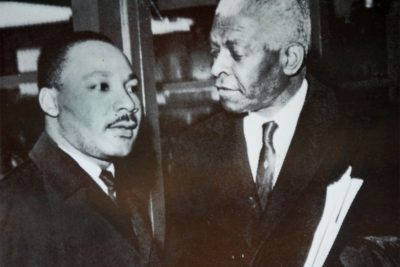 Benjamin Mays (1895–1984) The Formative Years, Early Religious Scholarship, The Howard Years, Morehouse College, The Morehouse Mentor. Education State University
Benjamin Mays (1895–1984) The Formative Years, Early Religious Scholarship, The Howard Years, Morehouse College, The Morehouse Mentor. Education State University
Benjamin Elijah Mays was born to former slaves Hezekiah and Louvenia (Carter) Mays in Epworth, Greenwood County, South Carolina. The youngest of eight children, he became a theologian, theoretician, orator, author, college president, civil rights activist, and school board president. Casting himself as a “rebel,” he greatly influenced the country and the world with his ideals and activities. Benjamin Mays is far better known for his spiritual guidance and intellectual leadership. Reared in an environment of hatred, Mays could talk of uplift because he lived it. The testimony of former students and public figures such as Martin Luther King Jr., Julian Bond, Lerone Bennett and many others suggests that his students listened to his exhortations. Read more
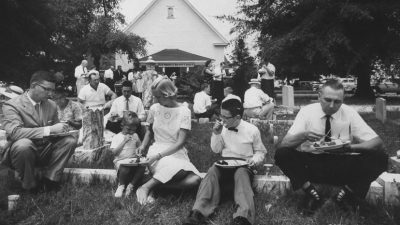 White Christian America Needs a Moral Awakening. By Robert P. Jones / the Atlantic
White Christian America Needs a Moral Awakening. By Robert P. Jones / the Atlantic
About the author: Robert P. Jones is the founder and chief executive officer of the Public Religion Research Institute. He is the author of White Too Long: The Legacy of White Supremacy in American Christianity.
The Christian denomination in which I grew up was founded on the proposition that slavery could flourish alongside the gospel of Jesus Christ. Its founders believed that this arrangement was not just possible, but divinely mandated. Yet many white Christians, like myself, came of age in churches and communities where we seldom heard anything substantive or serious about the white-supremacist roots of our faith. Read more
Historical / Cultural
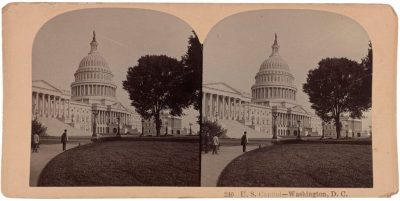 For Black Voters, a Flashback to the 1890s. By Charles M. Blow / NYT
For Black Voters, a Flashback to the 1890s. By Charles M. Blow / NYT
It is sad, depressing and enraging to watch as the Senate refuses to defend voting rights, largely those of Black and brown people. This rue-the-day moment is also a déjà vu moment. As a country, we have been here before, and it ended in about 70 years of brutally effective suppression of Black voters during the Jim Crow era. There was a democracy in America, a white one. African Americans and some other nonwhite Americans simply weren’t part of it. Read more
 In New Orleans, the Ghosts of Slavery Hide in Plain Sight. By Imani Perry / NYT
In New Orleans, the Ghosts of Slavery Hide in Plain Sight. By Imani Perry / NYT
If in other cities it is hard to locate the sites of human trafficking, in New Orleans one can’t avoid them. There were auction blocks in parks and sometimes aboard the docked ships. A Black person suited for labor — skilled or manual, childbearing or sexual exploitation — could be bought at a luxury hotel designed in the Spanish or French style. Slave pens were rapidly hammered up and filled with people. Auctioneers, brokers and buyers gathered around everywhere. Read more
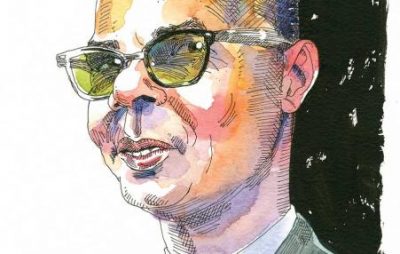 Eric Williams and the Tangled History of Capitalism and Slavery. By Gerald Horne / The Nation
Eric Williams and the Tangled History of Capitalism and Slavery. By Gerald Horne / The Nation
A new edition of Capitalism and Slavery, published by the University of North Carolina Press with a foreword by the economist William Darity, reminds us in particular of Williams’s independent political and intellectual spirit and how his scholarship upended the historiographical consensus on slavery and abolition. Above all else, in this relatively slender volume, Williams asserted the primacy of the enslaved themselves in breaking the chains that bound them, putting their experiences at the center of his research. Controversially, he also placed slavery at the heart of the rise of capitalism and the British Empire, which carried profound implications for its successor, the United States. Read more
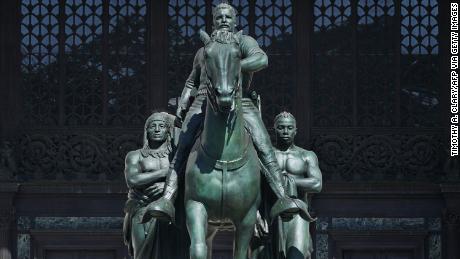 Theodore Roosevelt statue removed from outside New York’s Museum of Natural History. By Adela Suliman / Wash Post
Theodore Roosevelt statue removed from outside New York’s Museum of Natural History. By Adela Suliman / Wash Post
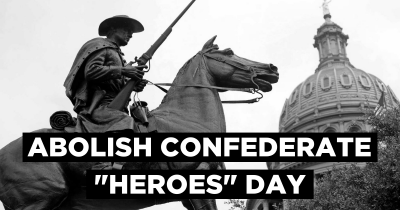 It’s time for Texas to abolish Confederate Heroes Day. By Karen Attiah / Wash Post
It’s time for Texas to abolish Confederate Heroes Day. By Karen Attiah / Wash Post
Across America, physical monuments to the Confederacy are being challenged and removed — as they should be. But there is a less-talked-about territory that the Confederacy still occupies: state holidays. As the expression around here goes, I was yesterday years old when I found out my home state of Texas marks Confederate Heroes Day every Jan. 19. I doubt many other Texans know the public holiday exists. It’s not talked about in schools, thank goodness. Public holidays celebrating Confederates as “heroes” have no place in modern-day America. Read more
 Tuskegee Airmen recognized with Top Gun honor 73 years after winning. By David Martin / CBS News
Tuskegee Airmen recognized with Top Gun honor 73 years after winning. By David Martin / CBS News
Members of the Tuskegee Airmen are some of the most highly decorated military pilots in U.S. history. But there was one honor that was overlooked for more than 70 years — until now. In 1949, a team from the famed all-Black Tuskegee Airmen won the first Top Gun contest, a gunnery competition among pilots from across the Air Force. But the record book listed the winner as “unknown.” “They knew who won, but they just didn’t want to recognize us,” said Retired Lieutenant Colonel James Harvey, a 98-year-old former fighter pilot who was part of that winning team. Read more
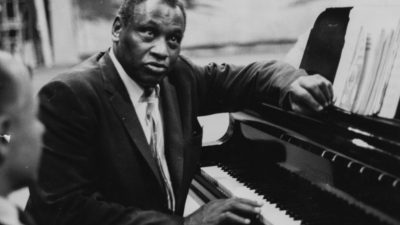 In memory of Paul Robeson, the man whose voice they tried to silence. By Denise Oliver Velez / Daily Kos
In memory of Paul Robeson, the man whose voice they tried to silence. By Denise Oliver Velez / Daily Kos
Jan. 23 is the anniversary of the death of Paul Robeson, one of the towering figures of Black and American history. Yet to this day, too many Americans do not know his history and his impact—not just here, but worldwide. Robeson’s championing of civil rights, the rights of workers, and his outspoken left-wing views brought him into direct conflict with the right-wing authors of the U.S.’ Red Scare, who sought to punish him—and succeeded. Let us come together for today’s #BlackMusicSunday to listen to his music and explore his life. Read more
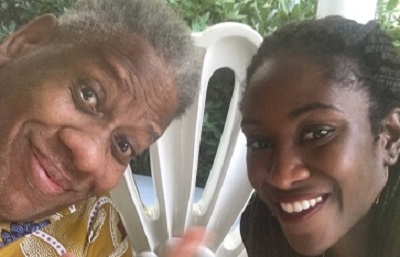 How the brilliant André Leon Talley got sidelined. By Karen Attiah / Wash Post
How the brilliant André Leon Talley got sidelined. By Karen Attiah / Wash Post
What I learned from Talley that day was a brief but ugly lesson on how one of fashion’s largest personalities and connoisseurs of elegance had been sidelined by the industry he loved so much. As much as Talley was a luminary and an inspiration, his was also a cautionary tale about being Black, gay and talented in a White, elite fashion world: No amount of awards, haute couture and highflying friends could save him from never truly being accepted. Read more
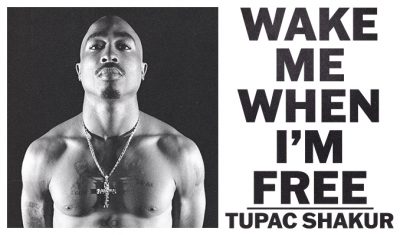 New Tupac Shakur exhibit, ‘Wake Me When I’m Free,’ looks at the revolution that created the revolutionary. By Justin Tinsley / The Undefeated
New Tupac Shakur exhibit, ‘Wake Me When I’m Free,’ looks at the revolution that created the revolutionary. By Justin Tinsley / The Undefeated
Taking a virtual tour of Wake Me When I’m Free, an interactive exhibit on Tupac Shakur that opens Friday in Los Angeles, I couldn’t stop thinking about an interview Shakur gave to BET’s Ed Gordon a month before he was shot multiple times at New York’s Quad Studios and convicted of sexual assault the following day. “If I can’t live free — if I can’t live with the same respect as the next man — I don’t wanna be here. Because God has cursed me to see what life should be like,” he said in October 1994. “Just because I don’t have nothing to pass around to let people put money in the bucket doesn’t mean I ain’t doing God’s work. These ghetto kids ain’t God’s children? ’Cause I don’t see no missionaries coming through there. I’m doing God’s work.” Read more
Sports
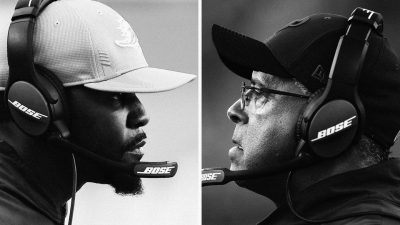 Black NFL Coaches Are in an Impossible Situation. By Jemele Hill / The Atlantic
Black NFL Coaches Are in an Impossible Situation. By Jemele Hill / The Atlantic
Recent firings highlight a long history of double standards and unrealistic expectations.
Coaches such as David Culley, just fired from the Houston Texans, and Brian Flores, of the Miami Dolphins until very recently, face a major problem in the NFL. It’s not their pedigree. It’s not their experience. It’s not their ability to relate to players. It’s not their offensive or defensive schemes. It’s that they’re Black. Read more
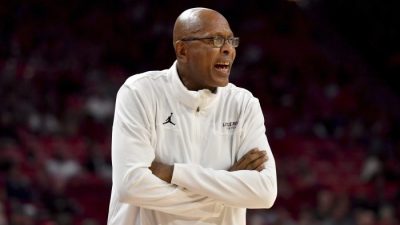 HBCUs giving former NBA players rare opportunities as college head coaches. By Pete Croatto / The Undefeated
HBCUs giving former NBA players rare opportunities as college head coaches. By Pete Croatto / The Undefeated
“Enough,” Darrell Walker responded when asked about how many resumes he sent for college coaching jobs. “Your resume is great but you have no college experience.” Sometimes he’d read that someone else was hired. Two NBA head-coaching stints, 10 years as an assistant, 10 years as a defensive menace in the league and a lifetime of accomplishments didn’t warrant a contrite form letter. In 2016, more than 15 years after an abbreviated stint with a forgettable Washington Mystics squad, Walker was again a head coach, this time at Clark Atlanta University. Read more
Site Information
Visit our home page for more articles, book/podcast and video favorites. And at the top of this page register your email to receive notification of new editions of Race Inquiry Digest. Click here for earlier Digests.
About Race Inquiry and Race Inquiry Digest. The Digest is published on Mondays and Thursdays.
Use the buttons below to share the Digest in an email, or post to your Facebook, Linkedin or Twitter accounts.